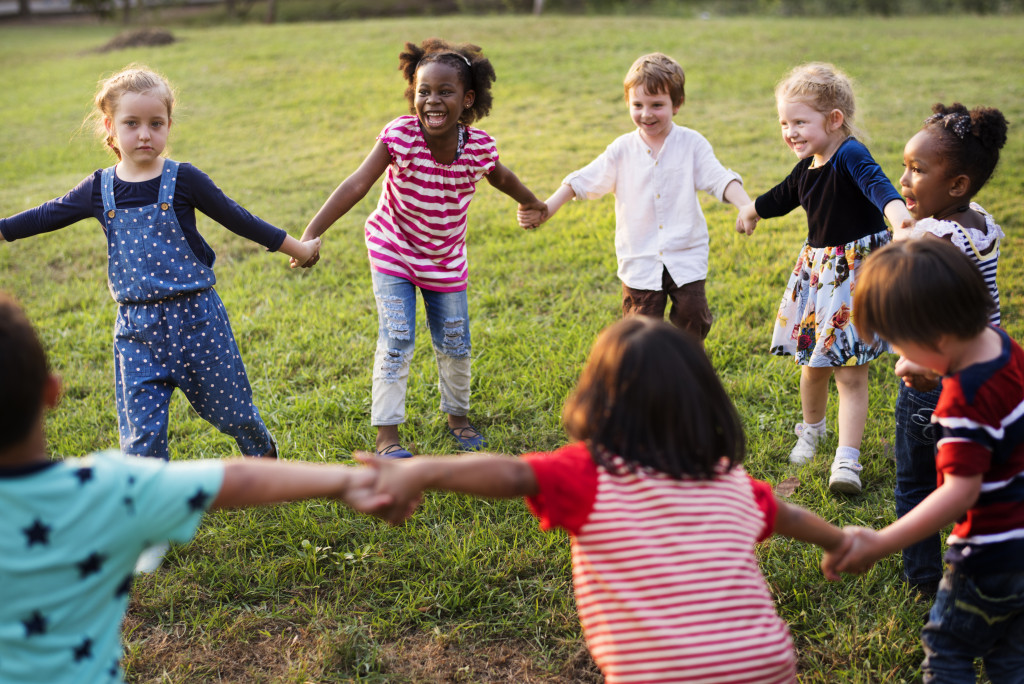- Social skills involve communicating effectively, understanding nonverbal cues, and empathizing.
- Common causes of poor social skills among children include autism, ADHD, dyslexia, low self-esteem, lack of role models, and bullying.
- Strategies to help children develop social skills include creating opportunities for interaction and leading by example.
- Parents can also teach social skills directly and practice empathy with their children.
- Positive reinforcement helps to celebrate successes and encourage solid social skills development.
As a parent, you want your child to thrive and succeed in all aspects of life, including socially. Developing social skills is vital for children as it helps them build strong relationships, communicate effectively, and navigate the complexities of social situations. However, not all children are natural social butterflies.
Fortunately, social skills can be developed and improved over time, and as a parent, you play a crucial role in helping your child develop those skills. This guide will share tips and strategies to help you build your child’s social skills and set them up for success.
Understanding Social Skills
Social skills involve communicating effectively, understanding nonverbal cues, and empathizing. A child with good social skills will likely interact positively with peers, teachers, and parents.
They are usually more confident, have better self-esteem, and are less likely to experience social anxiety or social isolation. As parents and caregivers, observing and guiding children in developing their social skills is crucial.
Encouraging them to participate in group activities and teaching them how to resolve conflicts constructively are ways to help them develop socially.
Commons Causes of Poor Social Skills Among Children

Children who struggle with social skills often lack the necessary guidance and support.
This can make them feel insecure, frustrated, or embarrassed in social situations. Additionally, children may lack the confidence to communicate their thoughts or feelings effectively. There are also other common causes of poor social skills among kids, such as:
- Autism
- Attention Deficit Hyperactivity Disorder (ADHD) or Dyslexia
- Poor self-esteem
- Lack of role models
- Bullying
- Insufficient social activities and interactions
Strategies for Developing Your Child’s Social Skills
When helping your child develop their social skills, it’s essential to be patient and understanding. Here are some strategies you can use:
Create Opportunities for Interaction
Children’s social skills blossom when they have plenty of opportunities to interact with peers or other adults outside their immediate family. As parents, providing such opportunities can be very beneficial to the child. Encourage your child to join clubs, participate in activities, be part of playgroups, or arrange play dates.
You can also enroll your child in daycare as early as possible to give them the chance to learn how to interact with others. Daycares allow children to interact positively with peers and adults alike and can help improve social skills while also providing a learning environment.
Lead by Example
Children learn from the behavior of adults around them. Therefore, modeling the behavior yourself is one of the best ways to help your child develop social skills. Demonstrate good communication skills, be kind and respectful, and demonstrate empathy. When your child sees you using these skills regularly, they learn to do the same. As a result, they can use and develop these skills with their peers.
Teach Social Skills Directly

While leading by example and creating opportunities for interaction is an effective way to develop your child’s social skills, sometimes direct teaching and persuasive instructions can go a long way. Be sure to teach your child social skills such as introducing themselves, giving compliments, working in a group in school, accepting constructive feedback, and expressing their feelings when needed.
Practicing Empathy
Empathy is an essential skill for social interaction. Teaching your child to see things from the perspective of others plays a vital role in developing empathy. You can stimulate empathy by encouraging your child to observe and understand social situations they experience daily. When you teach your child to empathize with others, you help them see beyond themselves and build meaningful relationships with others.
Reinforce Positive Behavior
When your child successfully demonstrates social skills like taking turns, sharing, listening attentively, or showing empathy towards others, praise and reinforce this positive behavior.
For example, if your child shares their toys with others, you can give them verbal praise or even reward them to encourage this behavior. Positive reinforcement helps children understand that those around them desire and appreciate these behaviors.
Wrapping Up
Helping your children develop their social skills is essential and requires active participation by parents. Encourage social interaction outside the immediate family circle, model positive behaviors, direct instruction, practice empathy, and celebrate positive behavior. As you guide them on their journey to excellent social skills, remember to be patient, encourage, and celebrate little successes along the way!



